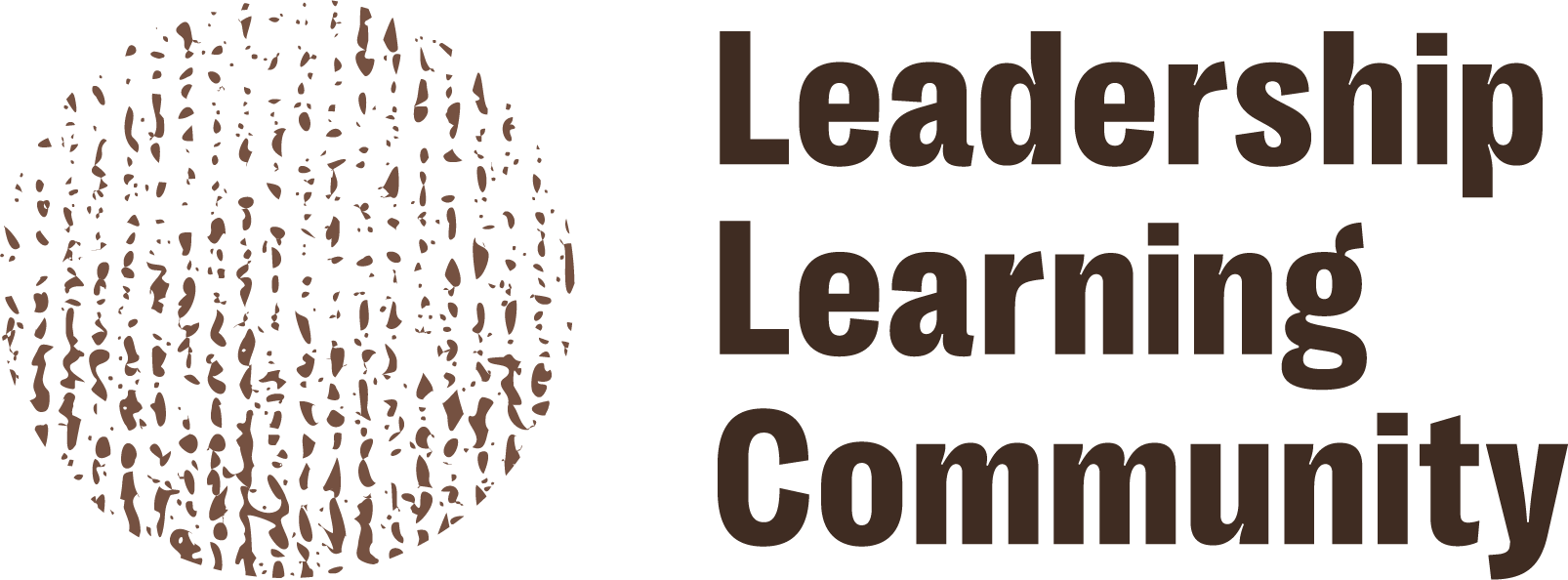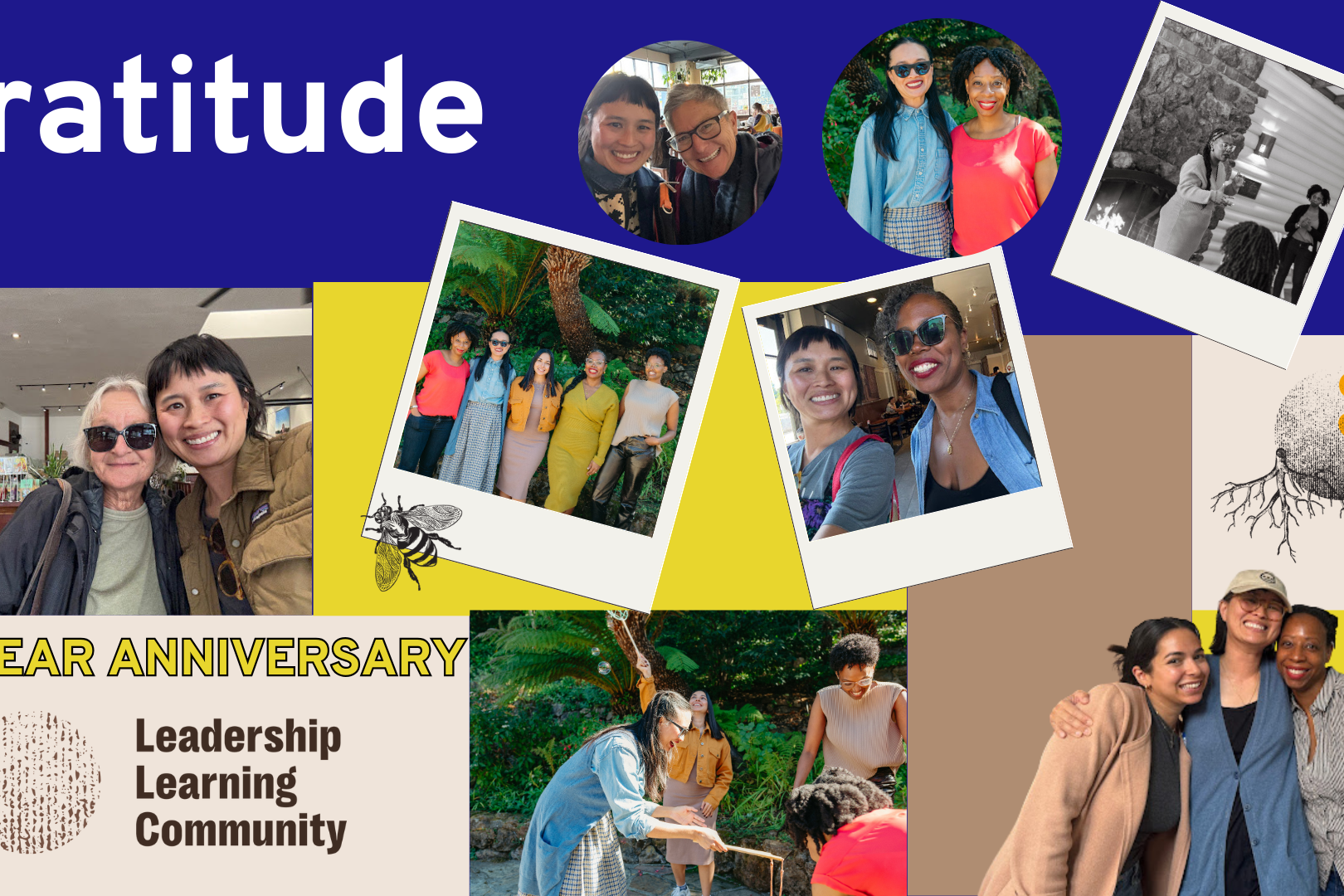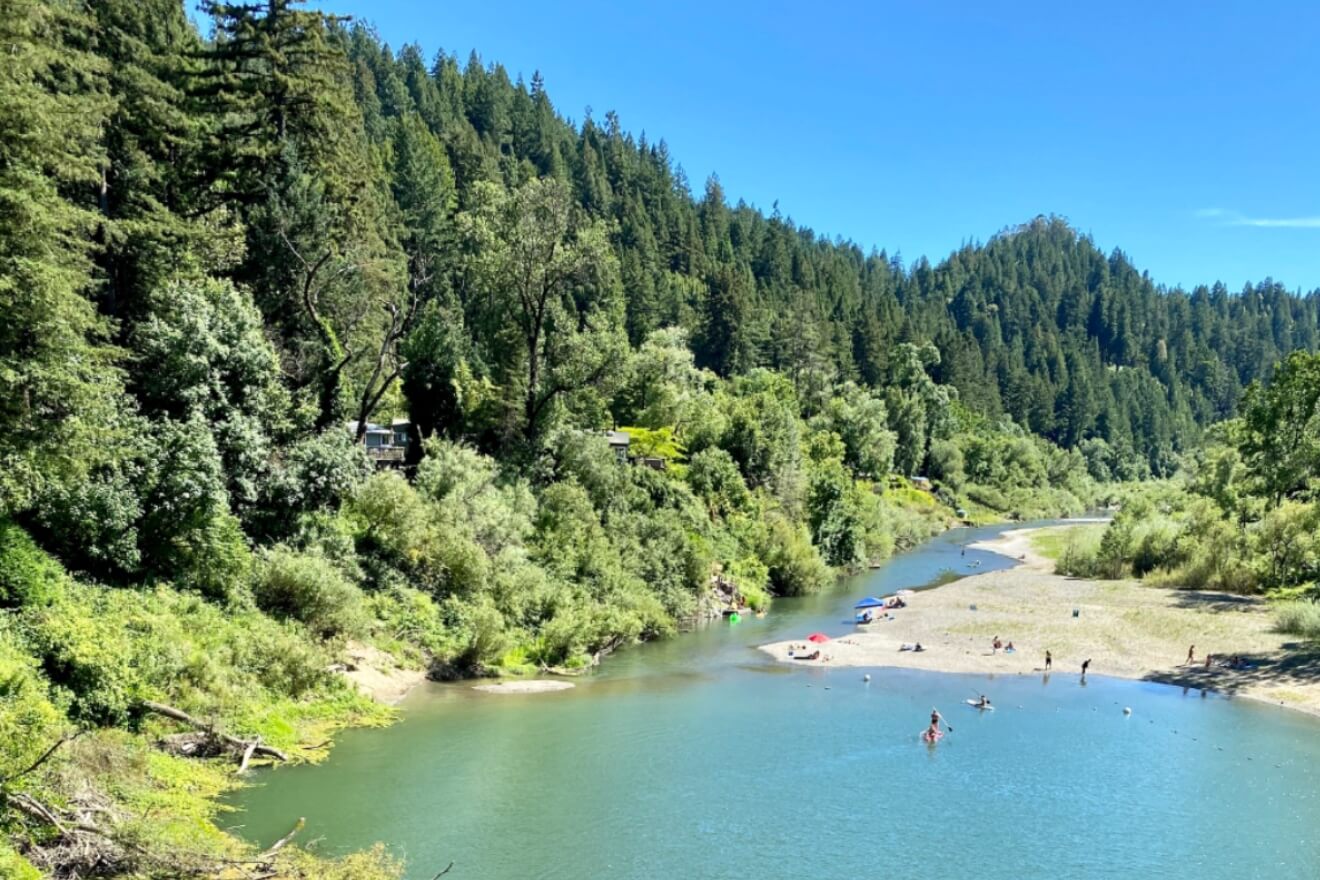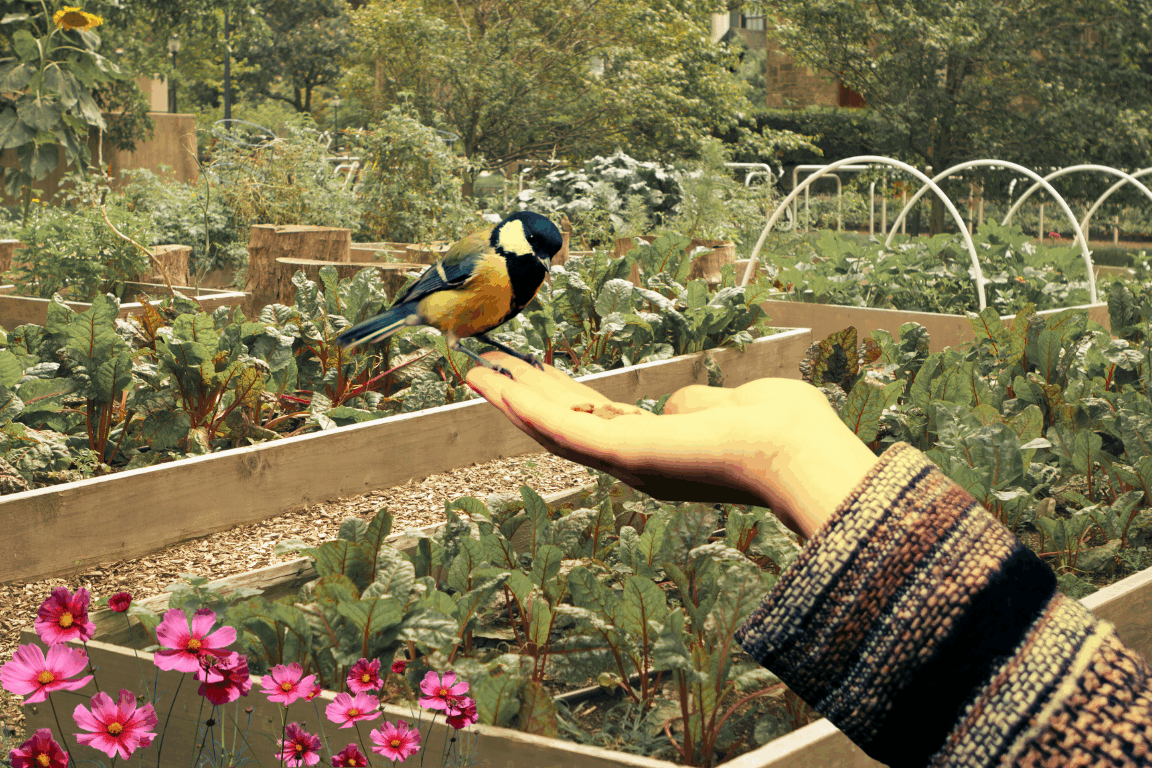Detroit
Laughter? Check. Tears? Check. Passion, connections, and follow-up? Check, check, check! Detroit Creating Space had it all.
Detroit was a fantastic place to kick off LLC’s Creating Space 2019 regional conversations. On October 30th, in partnership with Community Connections, we organized an event that pushed the edges of our equity in leadership thinking.
This year we are approaching Creating Space differently. Rather than having a national event, we are holding three regional conversations in Detroit, New York City, and the Bay Area, CA. The goal is to share learning from each event so that a cumulative impact culminates in our national convening in 2020, which is also LLC’s 20th Anniversary.
Regional conversations’ beauty is that they ground each conversation in the local context. As we have engaged in planning for each event, I have been pleasantly surprised by how different each event feels. We have so far succeeded in encouraging the tone and overall vibe of each event to reflect the culture(s) of the host location. This is particularly significant for an event like Creating Space because we take the name quite literally. We both create Space for attendees to have the conversations they need and for participants to collectively create the Space or container in which the conversations are held.
At the Detroit Creating Space, with the help of Gwen Bailey Winston, our amazing facilitator, participants could actively co-create the event, articulating what they needed and wanted from the convening. At Creating Space, we didn’t merely co-create a meeting agenda. We also built community. For example, participants felt we were moving too quickly at one point during the day and wanted to spend even more time connecting as individuals. I have never been pushed so nicely to adjust an agenda; because we took the time to build community when we challenged each other, it felt constructive and generative. It was fun and invigorating to change course and collectively re-imagine a path forward. As a result of this change, we pulled back and made more Space for relationship building, engaging in a series of paired conversations where we shared our “Freedom Dreams,” our dreams for a liberatory future.
We closed the event with a training on Networks and an introduction to the Wellbeing and Equity Bridging Network (WEB) by Yasmin Yonis. The WEB is a network of multiple organizations, groups, and people working on multifaceted issues to develop solutions that optimize people’s opportunities to lead the healthiest lives possible. While in its early formation, the WEB is being facilitated by LLC with financial support from the Robert Wood Johnson Foundation. The excitement in the room was palpable, with folks eager to join and nourish a network ecosystem in Detroit.
Although we are still processing the learnings from Detroit, a key reflection point for me is the importance of internal transformational work. As a group, we explored how the dominant culture shapes us as individuals and the institutions we work and engage. Participants in the group, actively taking on the co-designer role, pushed us to conscientiously name specific oppressive systems, such as white supremacy and patriarchy. This felt important to many because the convening aimed to explore how to avoid replicating oppressive systems, adding demographically representative leadership to old oppressive systems. This distinction between accurate equity and mere representation was critical to the conversation.
This eagerness for transformation was also reflected in a repeatedly expressed desire to move away from fractured individualized approaches. Participants longed for wholeness, connection, and collective and collaborative action. At Creating Space Detroit, we developed a foundation to satisfy that longing. Participants built relationships, making arrangements to connect after the event. A Facebook group was already created and populated before the meeting ended. Attendees also requested, volunteered, and shared resources. And several individuals are working together on projects that reflect overlap in their Freedom Dreams, with some seeking to resource collaborative projects through the WEB network.
I left Creating Space encouraged, excited, and inspired by the people I met and their amazing work. I’m confident that the work resulting from the connections made at the convening will have concrete and meaningful impacts on communities in Detroit.
New York
Even folks, or perhaps especially folks who live in a city that never sleeps, need time to stop and reflect. On November 21st, the New York Creating Space, an energizing and inspiring event, offered participants precisely that. For me, it was also a bit of a personal homecoming as I got to partner with my former colleagues at the Association for Neighborhood and Housing Development’s Center for Community Leadership and be in the community with people I’ve known for many years while also connecting with new folks.
This year we’ve developed a different model for Creating Space. Instead of one large event, we are hosting several smaller and more intimate events. So far, in addition to the New York conversation, we have held an event in Detroit and a virtual convening and will be hosting the final regional gathering in the Bay Area in January.
Creating Space New York, like the Detroit convening, had a very distinct vibe. New York has a reputation for being a tough place, populated by people armed with sharp elbows and sharper tongues. While the Creating Space New York participants demonstrated a keen intellect, they also showed gentle spirits with thoughtful comments and compassionate approaches to differences of opinion. There was a spirit of openness and an eagerness to hear from others that was rejuvenating.
We were joined by two amazing “Catalyst Speakers” who were both vulnerable and authentic, challenging us to think critically and expansively. Traditionally, at Creating Space, LLC invites individuals from our network to join us and share their experiences. We use the term “Catalyst Speaker” because their remarks are intended to spark new thinking and enliven the broader conversation. I’m very appreciative of Jennifer Lopez and Stephanie Yazgi, whose catalytic comments sparked deep contemplation and robust conversation.
As a group, we discussed our individual and institutional visions for engaging in Leadership Development in ways that shift power and advance justice, discussed challenges to achieving this vision, and then workshopped concrete solutions. We were able to hold these big complicated conversation topics because of the incredible skill of our fabulous facilitator Cathy Dang.
One of the key takeaways from the convening was that this shift requires us to think about some of the things we take for granted, our assumptions and biases related to how we do our work, and how we treat ourselves and each other while doing the work.
We talked about many things but focused our conversation on three key topics:
Leading with Love and Rigor: As a group, we asked ourselves, “How do we do our work in ways that align our actions with our values?” collectively unpacking what it means to truly support leadership through a lens of love, while simultaneously retaining the rigor our critically essential work demands.
- People are sometimes too afraid of being criticized to try new things. The group suggested that we occasionally take time to put critique of each other on hold to create Space for innovation.
- We won’t always agree with each other, so we must find ways to stay in the community even when we are not in agreement. The group suggested that we practice learning to disagree and explore generative conflict. This conflict generates reflection and new thinking and can preserve relationships rather than conflict, which shuts down conversation and damages relationships.
- The group spent much time interrogating standard non-profit/movement workplace practices, including salaries, benefits, and workloads. Participants were explicitly interested in ending the martyrdom cultures within many organizations, suggesting that we instead create cultures that value well-being, celebration, and appreciation.
Interrupting and disrupting oppression: Together, we explored ways of structuring our work to interrupt oppression rather than replicating the oppressive practices the dominant culture taught us. We also recognized that individually and institutionally, we’ve absorbed these lessons to effect change. We must intentionally transform how we engage with ourselves, our peers, and our organizations.
- Learning to respond to oppressive practices and actions in real-time and treating the interruption as a priority rather than something which can be set aside while we pursue “the real work.” This requires us to invest in tools, training and resources so that folks will have the capacity to interrupt intentionally and effectively.
- Encouraging folks who bear the brunt of oppression to practice self- and community- care as an act of disruption. I can’t help but draw clear parallels between this concept and Audre Lorde’s quote: “Caring for myself is not self-indulgence, it is self-preservation, and that is an act of political warfare.” I think it is also a reminder that the burden of acknowledging and correcting oppressive practices should not fall only on oppressed people.
Holding Space for different strengths: The group expressed concern about how dominant culture has taught us to appreciate only certain types of knowledge, specific ways of being, and certain skills and strengths. Valuing a narrow set of contributions limits the available leadership development opportunities and to whom. The group collectively imagined a broader view of individuals’ contributions to movement work.
- Celebrate all labor, “not just the high-profile stuff.” This requires all of us to actively appreciate, value, and compensate all of the labor which makes our efforts possible, not only those which are commonly recognized by the dominant culture.
- Welcome different ways of communicating and presenting oneself. This requires us to address the implicit bias in our communication capacity assessment. Often, what is perceived as a communication deficiency in a person is just an indicator that a person is anything other than middle-class, white, male, American, cis, straight, or otherwise privileged.
- Host skill circles where individuals can teach and learn from each other on equal footing so that all of our contributions can be recognized and utilized.
- Think critically about our application processes for Leadership roles, programs, and jobs, to assess if qualification requirements are excessively exclusive, constantly questioning if we are acting as bridge builders or gatekeepers.
In addition to the strategies we workshopped, we also unearthed many unanswered questions that folks were eager to continue exploring., Some of the remaining questions include:
- What does wholeness really mean? The participants expressed a deep desire for wholeness, to be honest with each other and themselves. We identified two challenges with this: 1. In many of our work or movement spaces, we tell people to bring their “whole selves”; however, our actual practices rarely encourage people to do so; 2. Simultaneously, folks struggled with competing desires, the desire to have distinct boundaries, and the desire to bring their whole selves to various spaces, the balance of having personal boundaries with the willingness to show up authentically.
- Do we need more connections and relationships? Relationships are a bedrock part of movement work. I know I am constantly suggesting that we need more relationships and more connections. Still, at Creating Space New York, participants questioned this assumption, asking if we need more connections or if we need to look at the relationships we currently have, exploring the challenges and opportunities, tensions, and bonds that already exist in addition to building new relationships.
- How do we deal with our trauma and “broken bits”? Over and over again, Creating Space New York participants expressed a desire to be in spaces where they can be weak, imperfect, and vulnerable and where that vulnerability will be held gently and protected. As one person said: “I want to be able to break down and recover” in movement spaces. How do we create spaces that allow for this courageous vulnerability?
I am so grateful to everyone who joined us at Creating Space NY. I look forward to the ongoing efforts participants are taking on and am excited about LLC’s growing investment in regional work.
Many thanks to the Creating Space Detroit attendees, our facilitator Gwen Bailey Winston, Yasmin Yonis, as well as Kayla Perrin and Kathy Wyzacki-Durham staff of Community Connections led by Lisa Leverette for making this such a fantastic event
Many thanks to the Creating Space New York attendees, our facilitator Cathy Dang, network presenter Yasmin Yonis, as well as Emily Goldstein, Melanie Breault, Malika Conner, Aixin Li, Armando Moritz-Chapelliquen, staff of the Association for Neighborhood and Housing Development, as well as our hosts, The People’s Forum, for making this such a wonderful event.
Related Posts
December 15, 2025
LLC’s 2025 Celebrations
July 21, 2025




